Laura Alves
Laura Alves is an activist in the real sense of the word - she doesn’t look to exact change by talking, writing to politicians or bemoaning to those around her, but by doing.
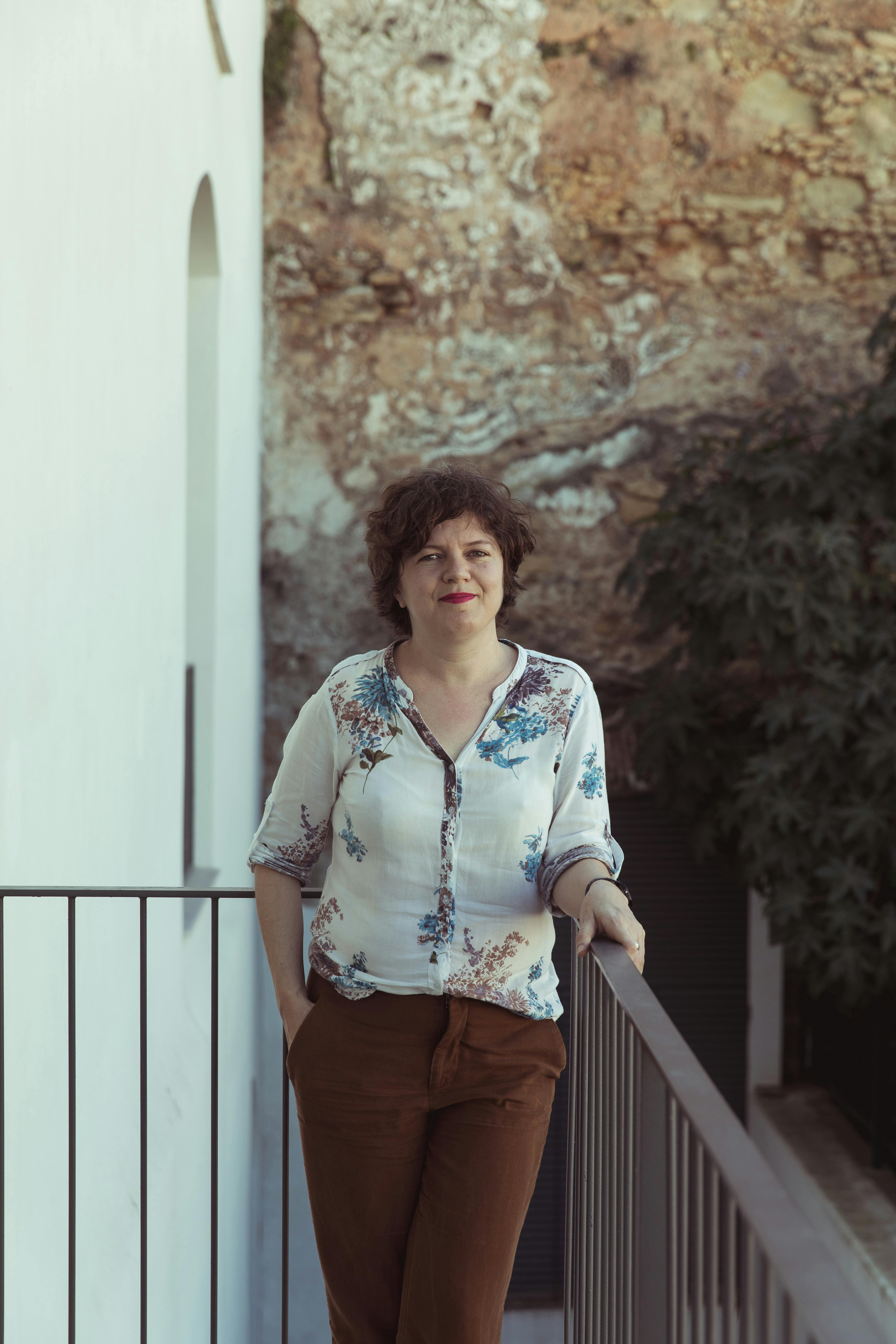
Text: Nick Chapman
Portrait: Andy Donohoe
Photos: Vitorino Coragem
She is the author of the book A Gloriosa Bicicleta (together with Pedro Carvalho), and creator of the documentary project Maria Bicicleta (with photos from Vitorino Coragem). We met her at NOW_, a co-working space in the Beato neighbourhood, set in a beautifully converted warehouse that used to be a wine distributors. Her desk amongst the shared office is immediately identifiable as her trusty bicycle is leant against the wall behind it. Laura is a freelance copywriter who also helps to run NOW_Beato. Amongst these creatives and entrepreneurs you can tell that she is a person always looking to the next thing, an early adopter but one with a view to making things better rather than being trendy, someone who actively pushes forward and is instrumental in making change happen in her own way.
Have you always cycled?
Not always. As a child, of course, since I lived in a village in the middle of Portugal and everyone grew up riding a bike. As I got older I rode a scooter and got my driving licence at the age of 20. I moved to Lisbon in 1999 but didn’t have a car, the public transport is fine to get around, if a bit chaotic. In 2006 I saw a photographer who I was working with riding his bike around the city and I thought ‘why not?’ - I was working downtown and living near the river so my journey was flat, so I bought a bicycle. There were no bike lanes but I knew how to negotiate traffic.
By 2012 more people were using bicycles in Lisbon - Massa Crítica built a community. It was a time when, if you passed another cyclist in the street, you stopped and said hello, asked them where they were going. Nowadays that doesn’t happen - there are many more people riding.
How did you get more involved in the cycling community, beyond riding?
There was a magazine called B - Cultura da Bicicleta. There were other magazines about bikes in Portugal but they were about sports riding and mountain biking. This was the only one about bicycle culture and I contacted the guy who ran it - Pedro Carvalho - saying I wanted to write some articles, which I did for six months. In 2013 a publisher got in touch as they wanted to bring out a book in the same vein as the magazine, and Pedro said ‘You should write it.’ We worked together on the structure and I wrote the book which was a great opportunity for me as everything was happening in Lisbon with bikes at that time. The result was A Gloriosa Bicicleta.
How was the book received?
The reaction was very good. It was interesting to write and was welcomed by the cycling world in Lisbon. It was a satirical but factual take on the bike - funny to read but also instructive. To start with it was read by people already involved in the scene, riding bikes. But it found a wider audience with people who gave cycling a chance. Even if they didn’t become ‘cyclists’, they became more aware of the people who were riding bikes so it was good for building awareness.
So what happened after that?
In 2014 I created Maria Bicicleta, an online project to highlight women using bicycles. Together with a photographer, Vitorino Coragem, I documented 20 women in total - two from Porto and the rest from Lisbon (it was just easier to do the interviews) - and released one per week for three months, with photos and short texts about their cycling experiences.
It was not a battle between the sexes, but we saw that a lot more men were riding bikes than women. Men always seemed to be a lot more interested in the mechanics of the the bike, wearing lycra shorts, making it a sport. We are Latino, in Portugal and Spain, and it’s a very macho culture. If I went to the bike shop there was a lot of ‘mansplaining’.
I wanted to tell the story of women and bicycles. Why they are riding, how they started, the new things that they can have and show by doing it: confidence, self-esteem, be in their own rhythm, show the world that they can be in their own space, display concerns for environmental issues. There were many different stances and motivatons, different approaches shown in the way they dressed - girls with nice shoes in their bag for when they got to work, showing others that you don’t have to be sweaty just because you ride.
And what was the response like?
It was amazing. The project started in February, and when it finished in June, I had been contacted by many women who wanted to be featured. We also got in touch with the city council, and we managed to get funding to make an exhibition so we displayed photos and text on billboards all along the main road near the old Vélocité Café.
Do you feel that it has had a long-lasting impact?
Yes, since then we have seen a lot of women going to the streets with confidence.
However you still go to places where bicycles are being used recreationally and it is funny and sad: you see couples riding, the boyfriend in front and the girlfriend behind, in sports clothes and on a bike that is not right for her, and she is suffering. The boyfriend thinks that it is something that is fun, but she should be left alone with the bike to discover it on her own, not follow the boyfriend.
Cycling here for so long was seen as a male thing, as a sport, but it is not. In the early 2000’s lots of men invested in road bikes, in the ‘90’s it was mountain bikes. I don’t want to say that women don’t get that because there are women doing it, but men see it as a toy - they always want the latest thing. Girls are more relaxed, more practical - they see it as a mode of transport, as a thing of possibility. It was one of the Suffragists who said that women saw the bike as a way of freedom - a way to move around without being assaulted. Today we see this in Africa where girls use bicycles to get to school - if they don’t have a bike they don’t have an education, they are stuck in a cycle of poverty and patriarchy. It is a means of emancipation for women in poor countries.
In Lisbon it is not this extreme, but plenty of men see the bike as a toy where as for women it’s a way to go to work, to go shopping. I don’t like to see the world in sexist gender divides, but we have to understand and acknowledge the way the world functions.
And what is your current involvement with bicycles?
I was tired of being so exposed, doing these projects on my own. The book and then the documentary project and exhibition - I was always having interview requests, TV, newspapers, online forums. It got to the point that if people wanted a new bike they would call me to ask what they should get.
These days I’m spreading the word by cycling. My bicycle is very old, it’s very rusty, but I feel it shows if I can do it then anyone can.
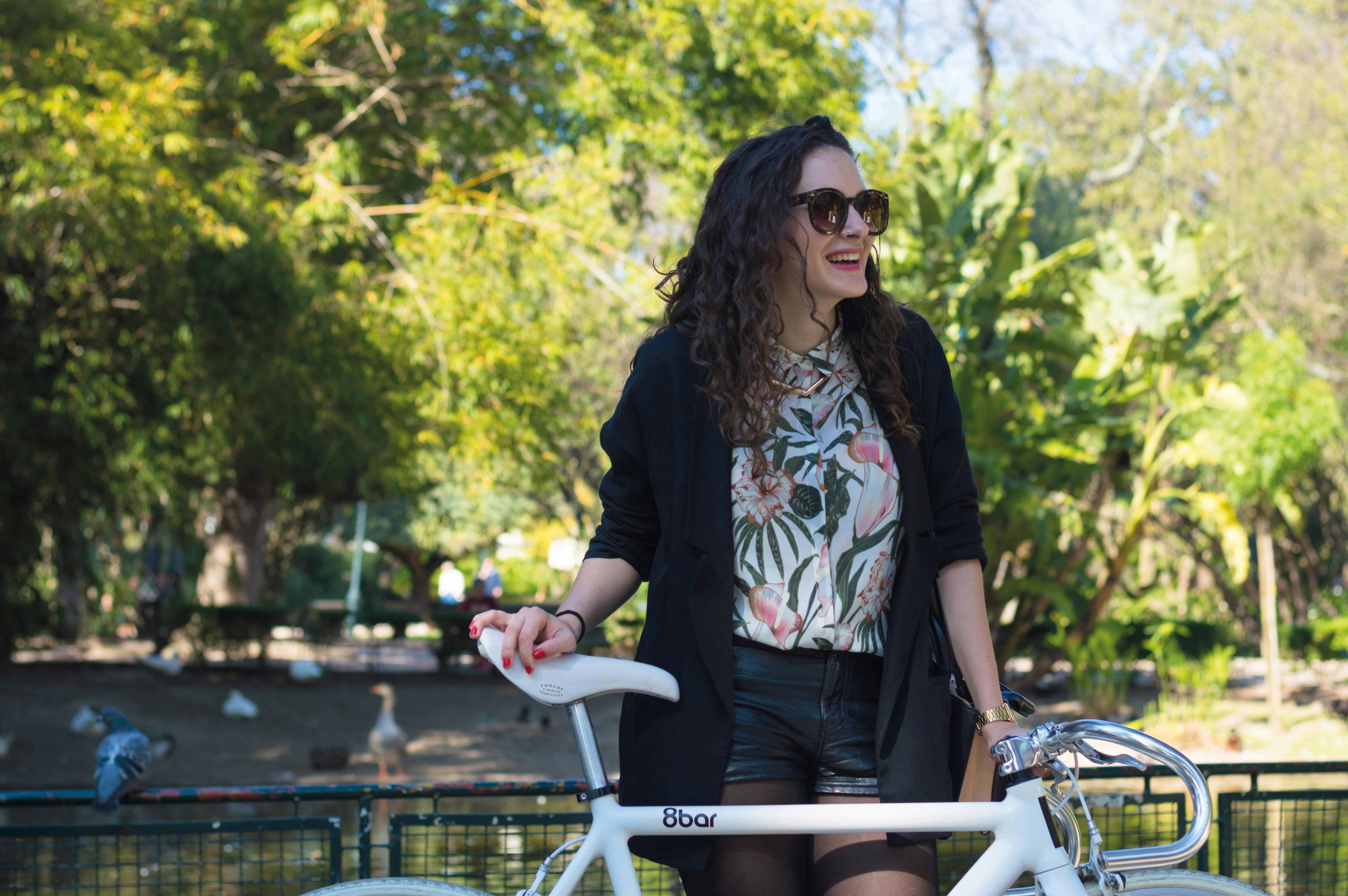
“The bike gives a sense of freedom and makes you stay in touch with what happens around you. Once, in my old neighborhood, I became aware of an old man who was making wooden benches. I had never realized that until I past him by bike. And this brought back great memories: my grandmother’s kitchen when she was making bread.“
Micaela Neto, designer
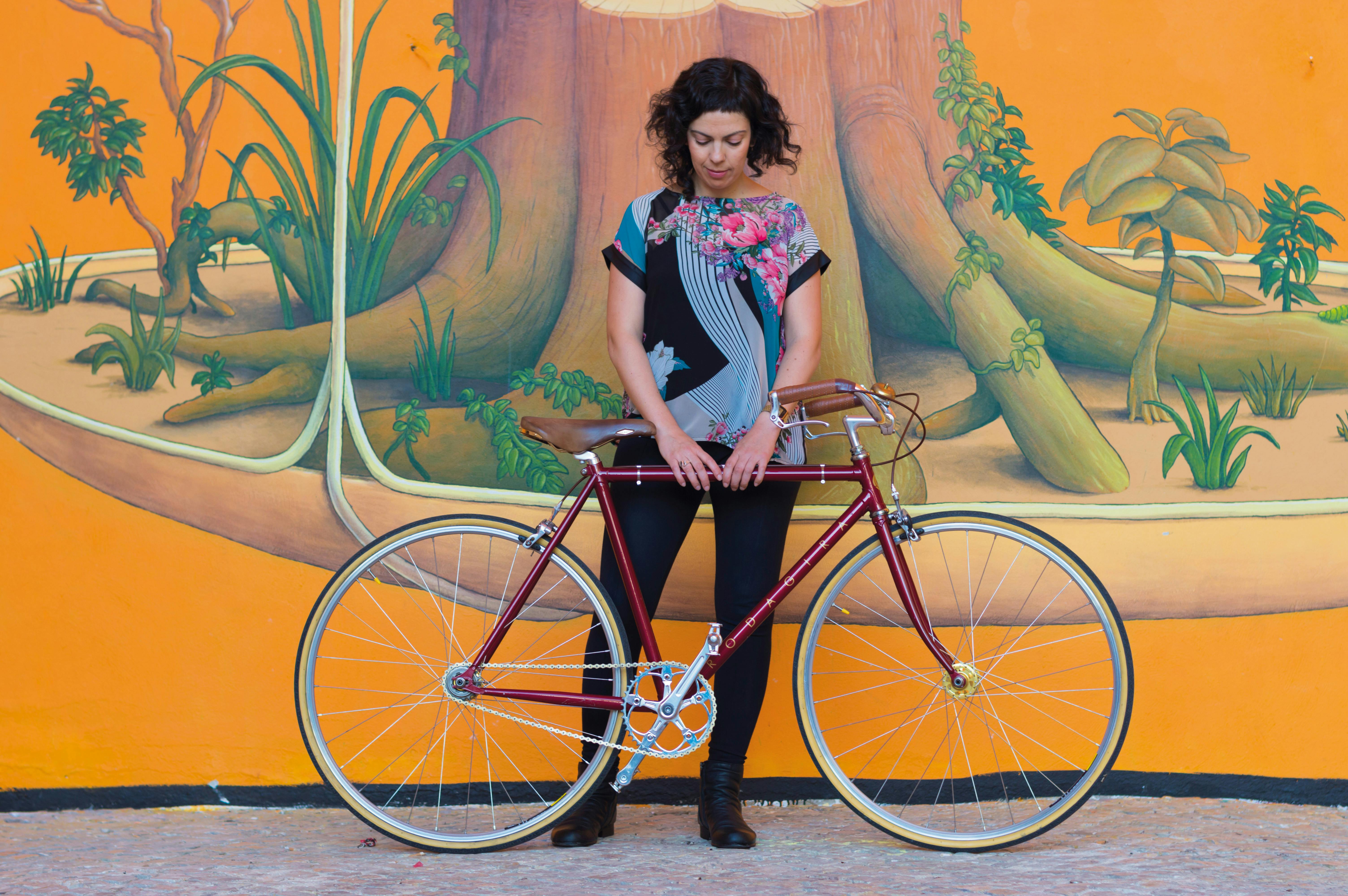
«My students would ask: “But why don’t you come by car?” And I would say that I don’t own a car. “What about a motorcycle?” That is to say, they thought that riding a bike meant I was poor. They were surprised to see an adult cycling. They ask why, where I come from and whether I am not scared».
Ana Isabel Almeida, teacher
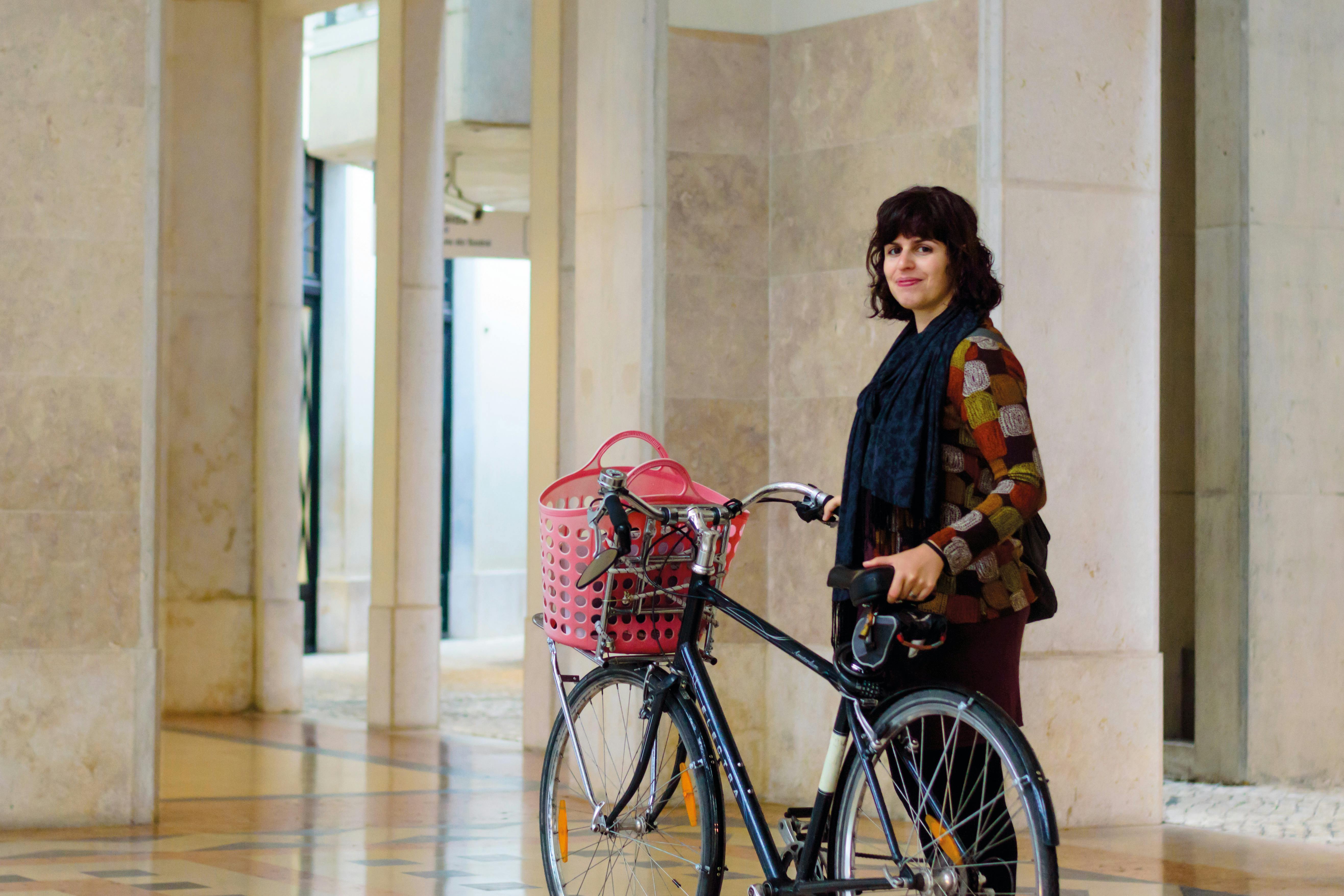
«I started cycling again in May 2012 because I thought that maybe it was OK to cycle on the street. At the time, I knew very few people who rode bikes in the city. In August, I met my husband on a bike ride in Lisbon. We got married last year».
Joana Alves, designer
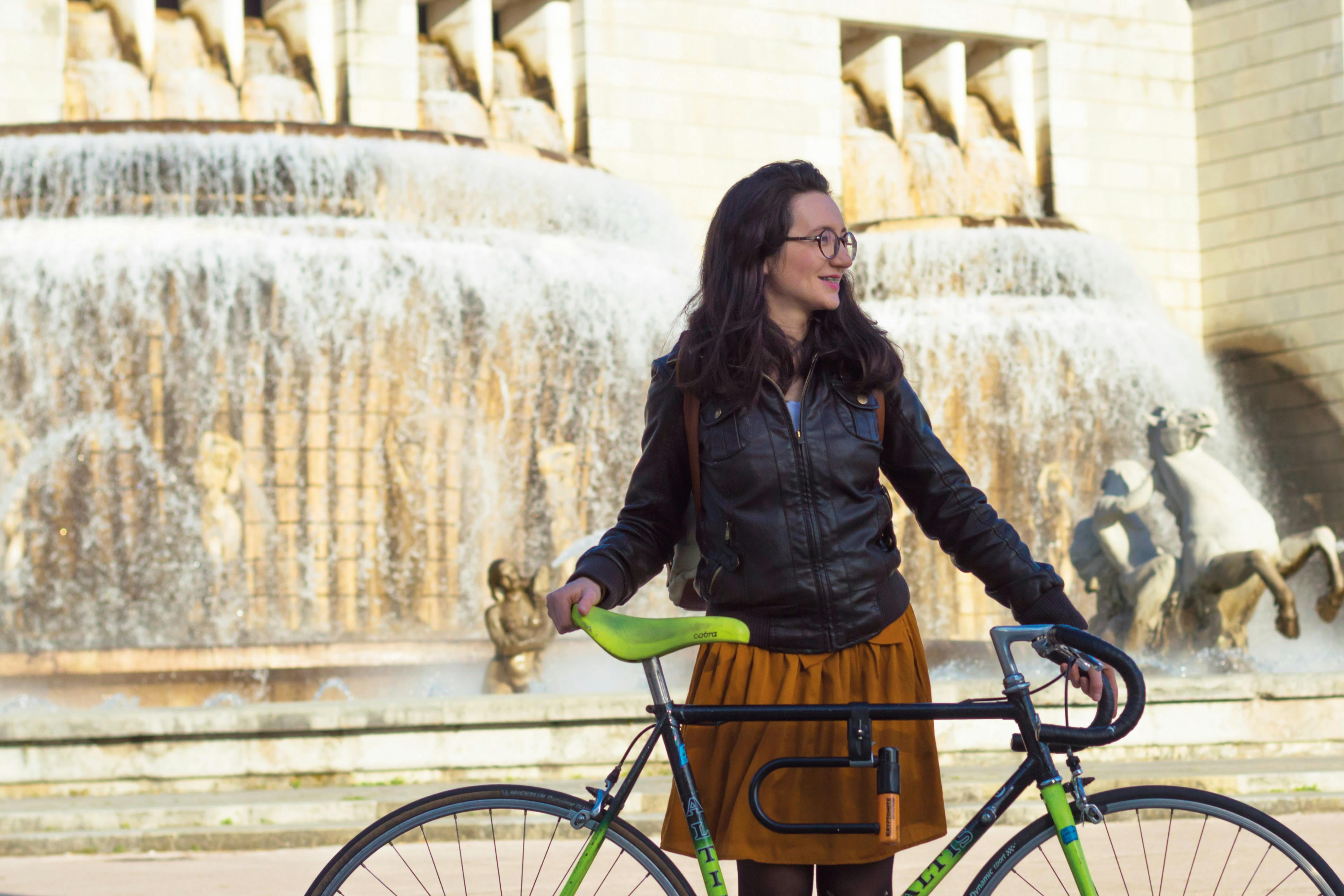
«I grew up in Magoito, near Sintra. At my parents’ home, everyone has a bicycle. In fact, there are more bicycles than people. It is very natural and the day-to-day life is done on a bike. If we have a vegetable garden, we cycle there. If we need to go to the supermarket, we do the same. It is almost like it is part of us».
Rute Timóteo, solicitor
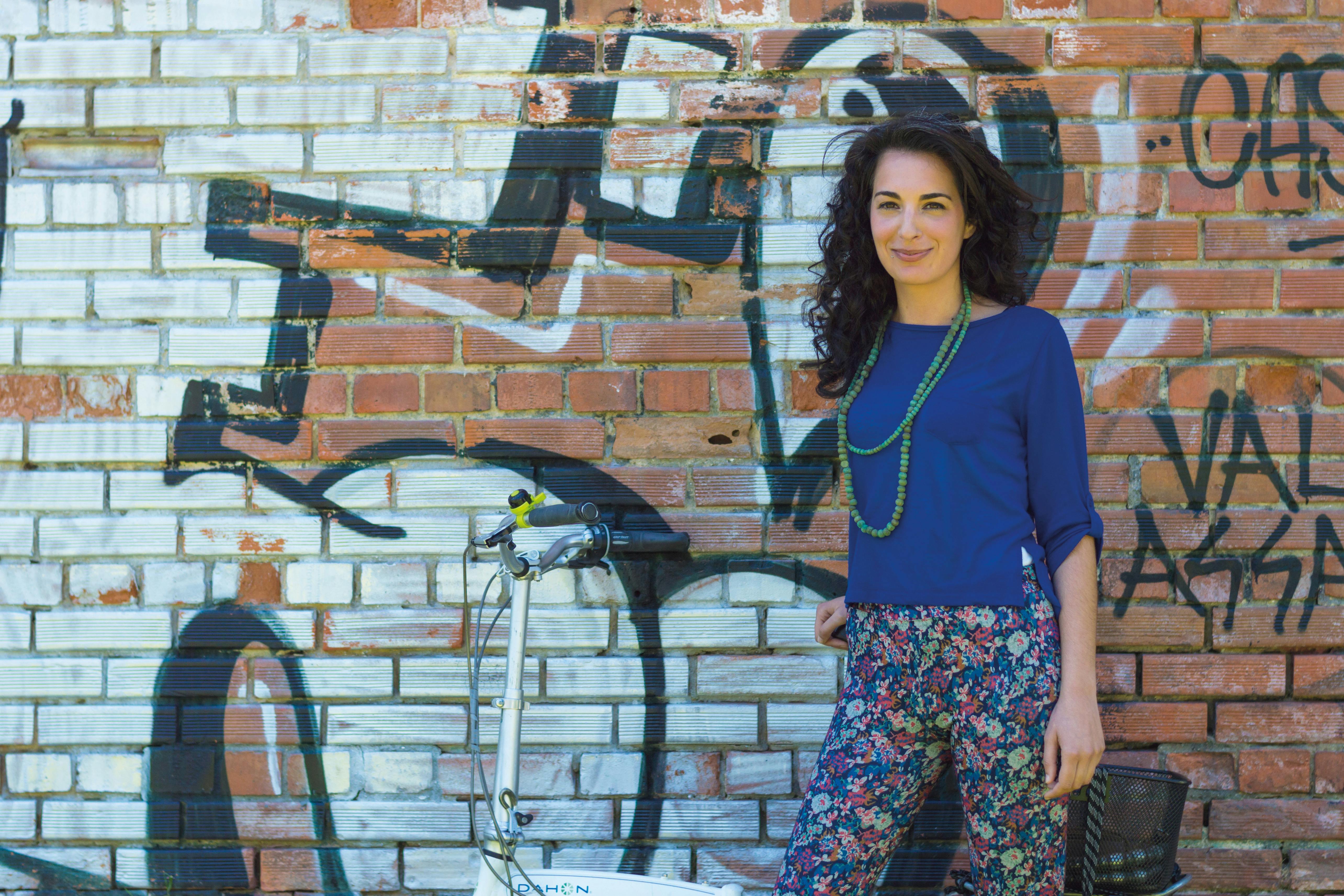
«In my village, near Aveiro, old women ride bikes, old bakers’ bikes, with the vegetables in the front. It’s something perfectly normal. I would ride a bike to school. In that area, it doesn’t matter whether you’re a man or a woman, because it’s a common practice. The bike is their means of transport».
Filipa Madeira, psychologist
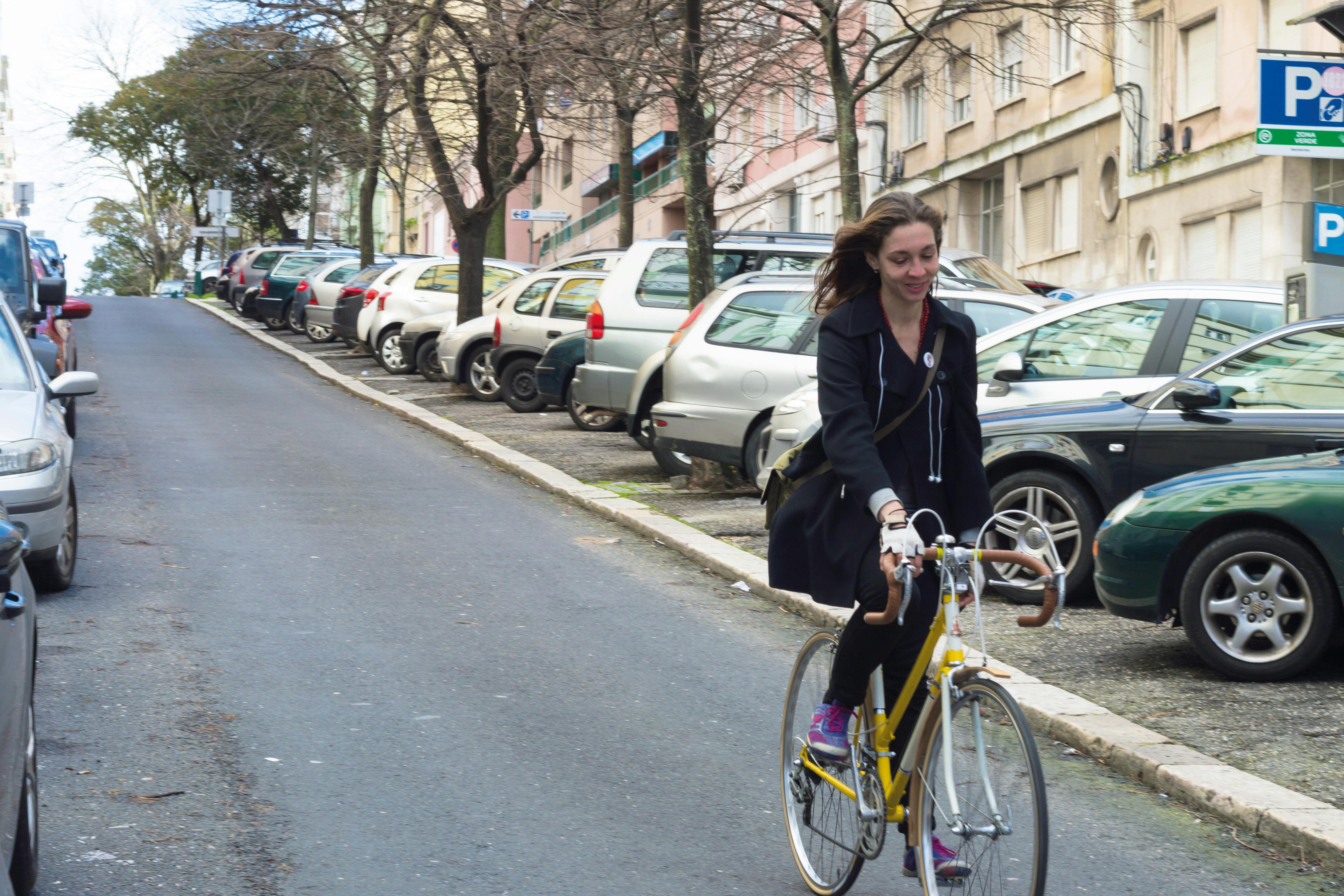
«As a woman, and because I wear normal clothes, I think I get more credit by many drivers. Deep down, this is discrimination, but I benefit from it and I try to use it in favour of good camaraderie on the road. I appreciate this “discrimination” and I try to use common sense so that riding a bike becomes a serene experience and not a shock activity.»
Mariana Carvalho, biologist
You can see the full Maria Bicileta project here